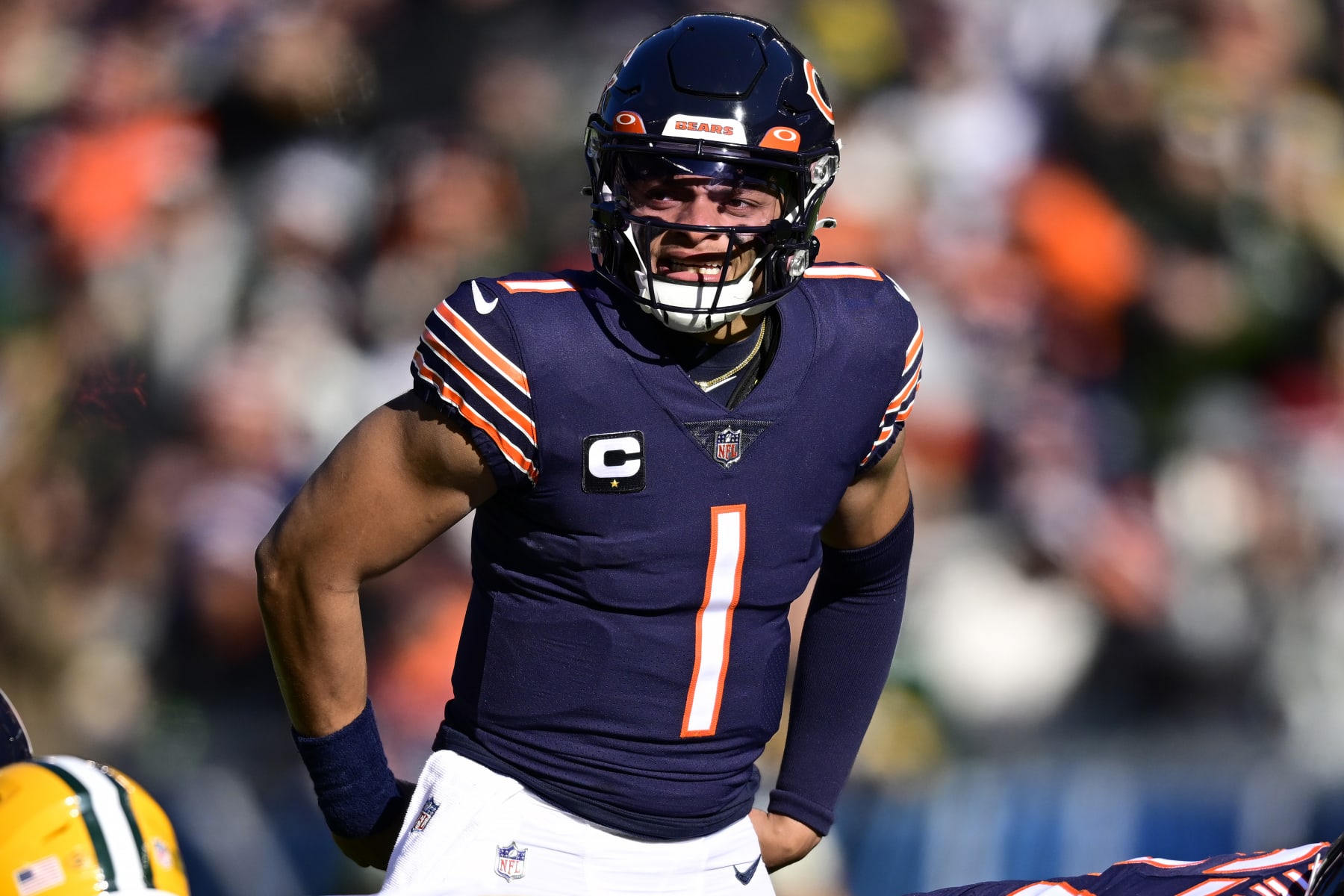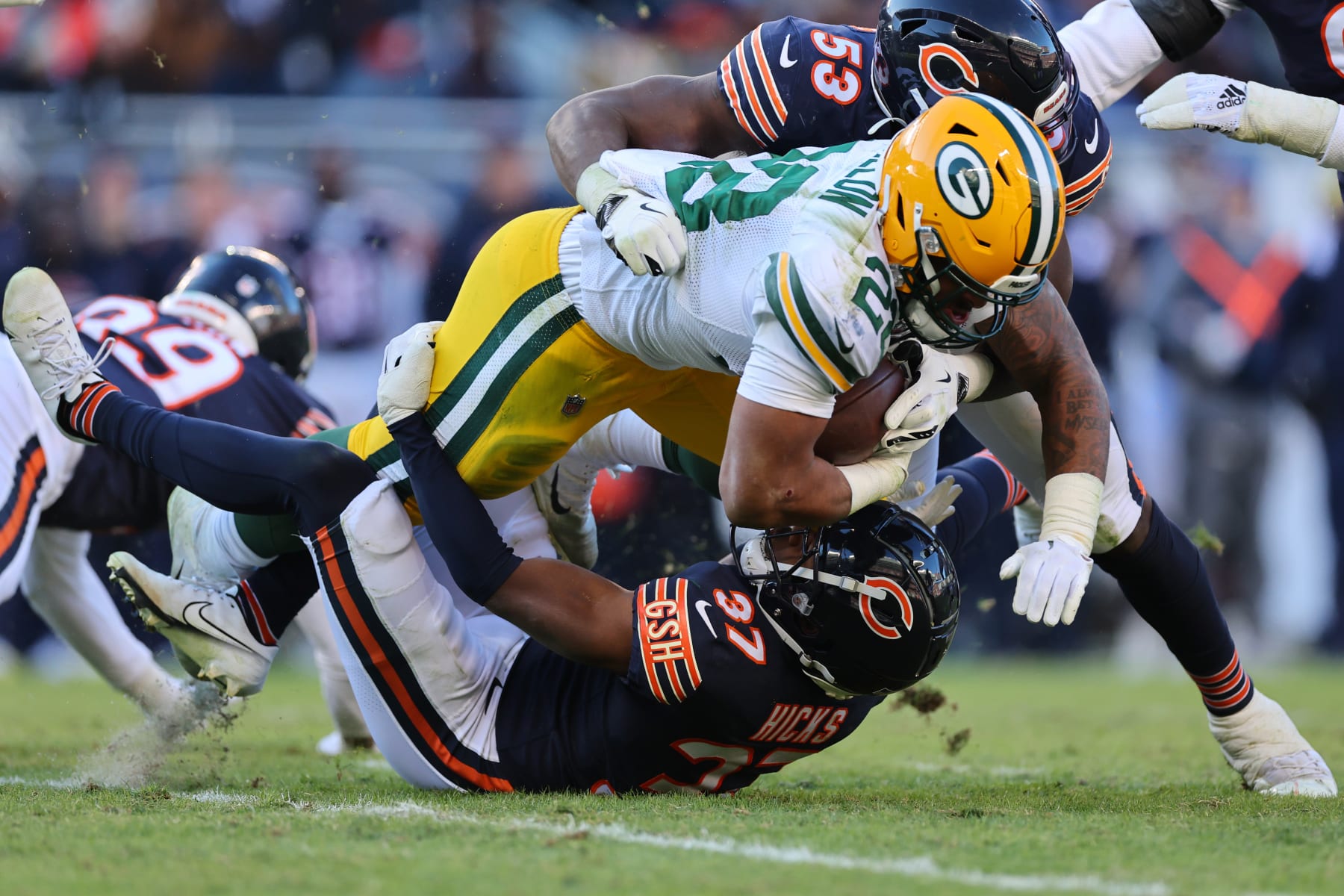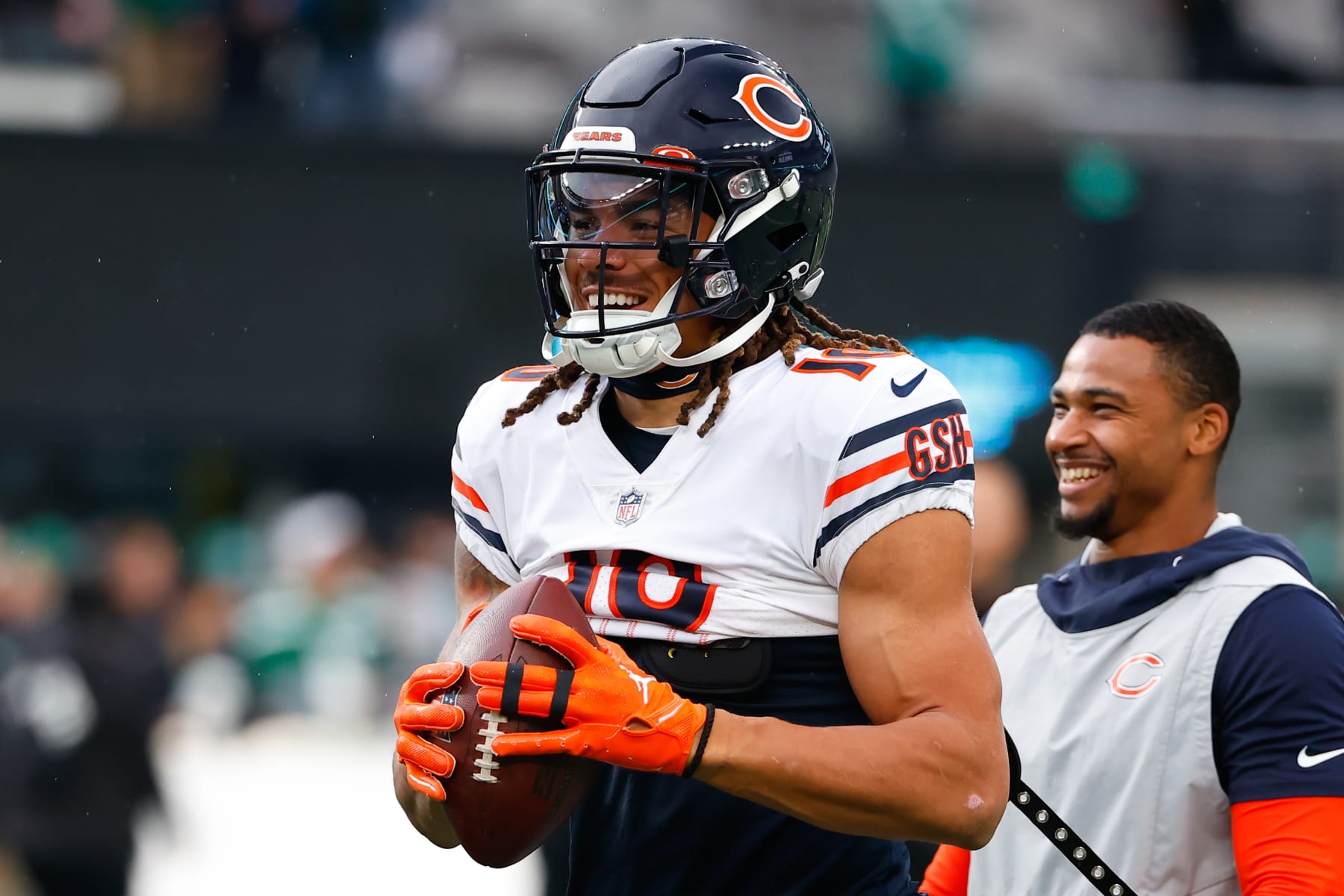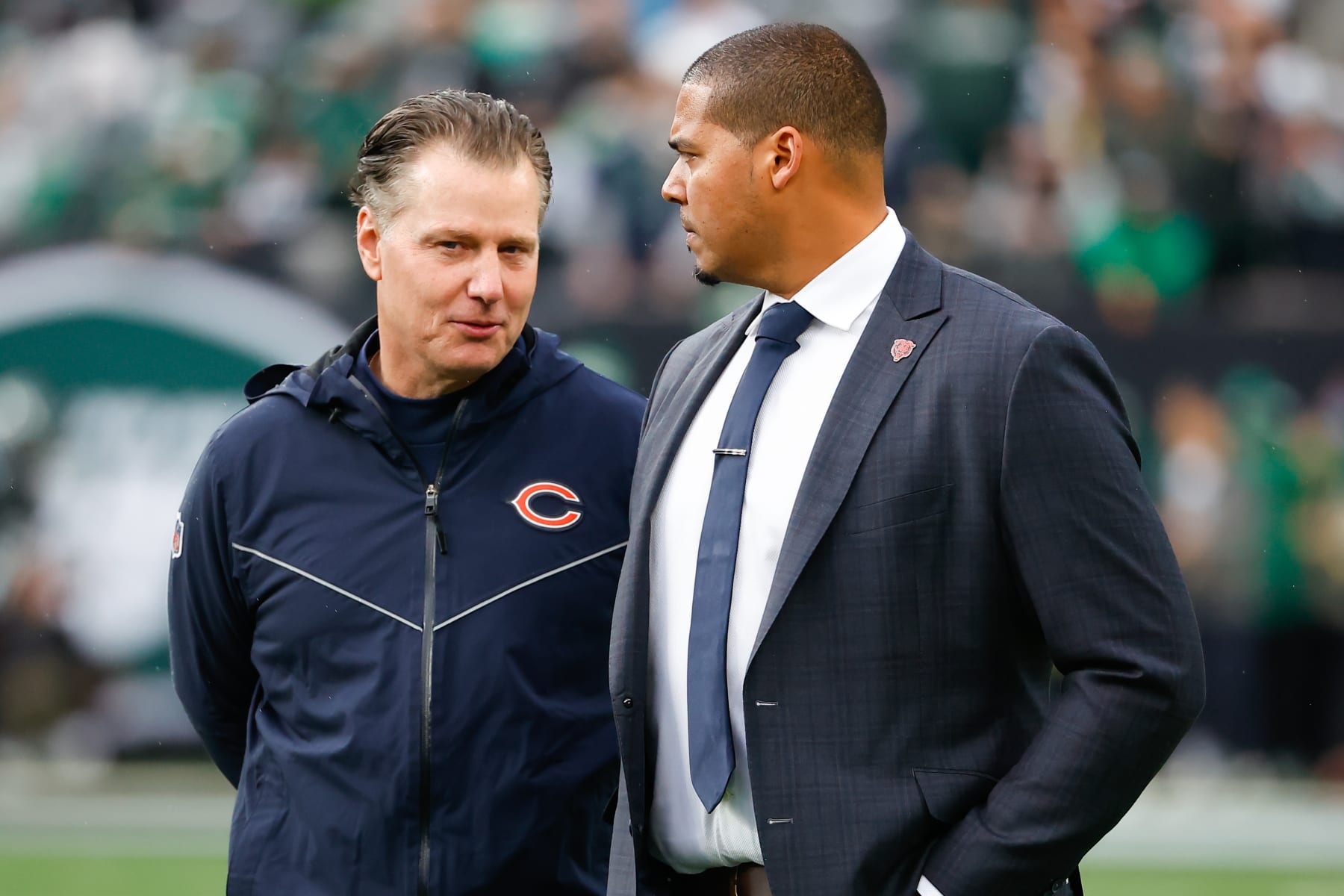3 Takeaways from Bears' Week 13 Loss vs. Packers
3 Takeaways from Bears' Week 13 Loss vs. Packers

The Chicago Bears suffered their sixth consecutive loss after blowing a late lead against the Green Bay Packers on Sunday.
Chicago led 19-10 heading into the fourth quarter, but sloppy play late on—highlighted by two Justin Fields interceptions—allowed the Packers to go on an 18-0 run.
It was a disappointing finish for a Bears team that seemed to get a jolt from the quarterback's return from a shoulder injury.
The result is probably similar to what fans can expect over the final five weeks of the season. Chicago continues to fight hard and see signs of greatness from Fields, but there just isn't enough talent on the roster to close out teams still fighting for a playoff shot.
At 3-10, the postseason is out of the question for the Bears, and they are playing for next season now.
Here are our three biggest takeaways from Chicago's Week 13 loss to the Packers.
Chicago Needs to Address Its Run Defense in the Offseason

Chicago's biggest offseason goal this offseason should be to improve the supporting cast around Fields. With top wideout Darnell Mooney on injured reserve, the quarterback's lack of weapons was glaring on Sunday.
However, the Bears also need to focus heavily on fixing their defense, specifically their run defense. Fields' two fourth-quarter interceptions were backbreakers, but Chicago still could have won this game if not for a putrid effort against the Packers' ground game.
Green Bay racked up 175 yards while averaging 5.5 yards per rush. It picked up eight first downs on the ground and scored on runs of 21 and 46 yards. This wasn't a new problem for the Bears, either, as they came in ranked 27th in run defense and 24th in yards per carry surrendered (4.7).
Of course, Chicago's lackluster run defense isn't surprising. It traded Roquan Smith and Robert Quinn before the in-season deadline and recently placed safety Eddie Jackson on injured reserve with a foot injury.
Tearing down the defense was a calculated decision, and the Bears will have their work cut out when it comes to rebuilding it. The good news is that they are projected to have a league-high $115 million in cap space next year, according to Spotrac.
Chase Claypool Continues to Struggle

The Bears would have quite a bit of draft capital to go with their glut of cap space if they hadn't acquired Chase Claypool.
Chicago still has an extra fourth-round pick from the Quinn trade, but it has just one second-rounder after getting one in the Smith trade and then flipping one to the Pittsburgh Steelers for the wideout.
So far, the Claypool trade isn't paying the desired dividends.
The Notre Dame product has shown flashes of his big-play ability—he had two catches for 51 yards last week—but he hasn't been a difference-maker for the Bears.
With Mooney out, Chicago desperately needed Claypool to step up in this game. While he did catch five passes, he produced just 28 net yards and fumbled the ball away in the second quarter.
Claypool appeared to be hurt on the fumble play, but he ultimately returned.
In four games coming into Sunday, the 24-year-old had just seven catches for 83 yards while providing a passer rating of only 60.2 when targeted. That's not good enough, considering the investment.
"The Claypool acquisition suddenly seems underwhelming for a receiver who thinks he’s a No. 1 guy," Mark Potash of the Chicago Sun-Times wrote last week.
Claypool hasn't played anything like a No. 1 receiver in Chicago. Perhaps that will change down the stretch, but if not, the Bears should be heavily invested in the receiver market in the offseason.
These Late-Season Losses Aren't Necessarily Bad

When the Bears traded away Quinn and Smith, they made it clear winning wasn't the goal for the second half of the season. Their aim is to reload in 2023.
"It just made too much sense for what we're trying to do," general manager Ryan Poles told reporters following the Quinn trade. "It's going to allow us to continue to build a highly competitive roster."
This is why defeats shouldn't frustrate fans as much as they will in the season's final month.
In losses like Sunday's—and close defeats to the Atlanta Falcons and Miami Dolphins—Chicago has shown it has some solid players and no lack of fight. By coming close and not winning, it also keeps its grasp on the second overall pick in the 2023 draft.
That's important because if the Houston Texans use the No. 1 selection—assuming they claim it, of course—the Bears will have their pick of some intriguing defensive prospects.
In the Bleacher Report Scouting Department's latest draft rankings, the top three prospects—Will Anderson Jr., Jalen Carter and Myles Murphy—are defenders.
By grabbing an elite defensive prospect to go with an up-and-coming quarterback in Fields, Chicago would have key building blocks on both sides of the ball. It could also consider moving down and acquiring even more picks by trading the No. 2 selection to a quarterback-needy team.
Sure, it might have felt good to put the coffin nail in Green Bay's season, but with little to play for in 2022, a loss is actually better for the big picture.
